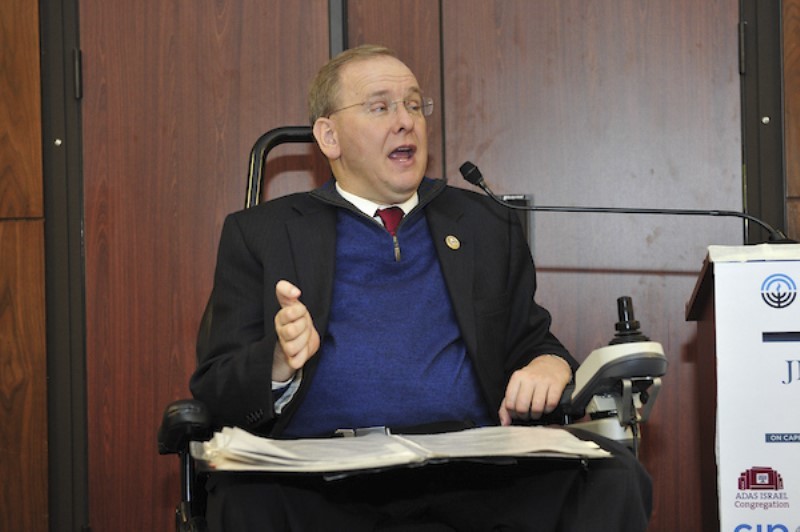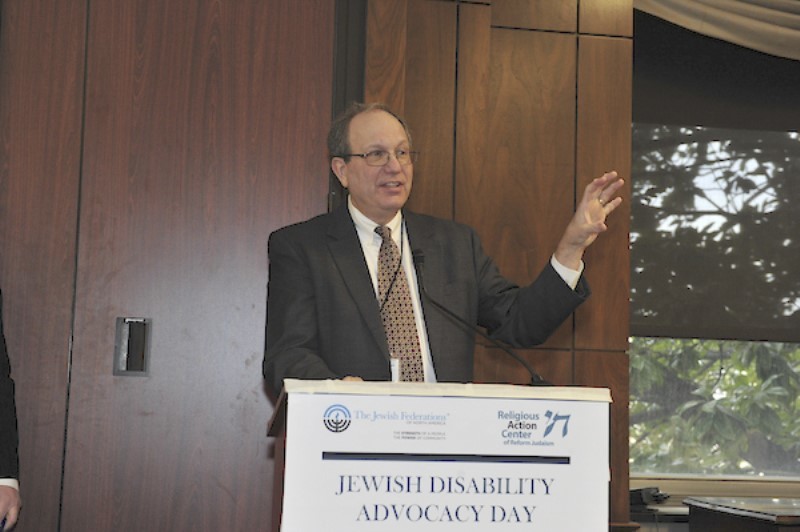Awareness, education at forefront of Jewish Disability Advocacy Day
More than 180 members of the Jewish community, representing variety of organizations and institutions, converged on Washington, D.C., Feb. 2 for the seventh annual Jewish Disability Advocacy Day. The program featured briefings by leading experts on the today’s disability issues and concerns, including information on two disability-related issues being reviewed in Congress. At the conclusion of the conference, advocates attended meetings with their congressional delegation to lobby on the issues. The program was sponsored by The Jewish Federations of North America and the Religious Action Center of Reform Judaism.
Attendees also heard from a number of congressional leaders, including Rhode Island’s Rep. James Langevin. Langevin has been a champion for the rights of individuals with disabilities. He co-founded and co-chairs the House Bipartisan Disabilities Caucus, which is dedicated to raising awareness of issues affecting people with disabilities. He has worked with his congressional colleagues to help pass critical legislation impacting people with disabilities, including the ADA Amendments Act of 2008, the Affordable Care Act (ACA) in 2010, and the Achieving a Better Life Experience (ABLE) Act of 2013. At the conclusion of the congressman’s speech, William Daroff, senior vice president and director of the Washington, D.C., office of the Jewish Federations of North America, thanked Langevin for his commitment and dedication to fight for people with disabilities, and for his leadership on the issue.
The one-day conference reviewed two major issues facing the 10 million people with disabilities who comprise 15 percent of Medicaid’s total enrollees: Medicaid reform and preserving the Americans with Disabilities Act (ADA).
Medicaid assistance touches on daily living, including nursing, transportation, physical therapy, occupational therapy, personal care services, speech/language/hearing therapy, transportation, and targeted case management. As these services and others are deemed optional in traditional Medicaid, they likely would be among the first benefits to be cut due to the severe economic impact of a block grant or per capita cap, which are the changes being discussed in Medicaid reform. Transforming the Medicaid program into a block grant, or capping its funds, could jeopardize the access to needed services for millions of vulnerable Americans and their families.
If passed, H.R 620, the Americans with Disabilities Act Education and Reform Act, could undermine and weaken a key part of the ADA, leading to a less accessible society for people with disabilities. For example, the bill will potentially make it more difficult for people to enforce their legal rights when they encounter an architectural barrier when attempting to patronize a business.
“The Jewish community,” said Daroff, “has and will continue to advocate for laws and policies that help people with disabilities lead healthier, more independent, and more productive lives. Jewish Disability Advocacy Day provides an opportunity for communities to learn more about the issues and to bring their concerns to our representatives in Congress.”
MARTY COOPER is the community relations director for the Jewish Alliance.











